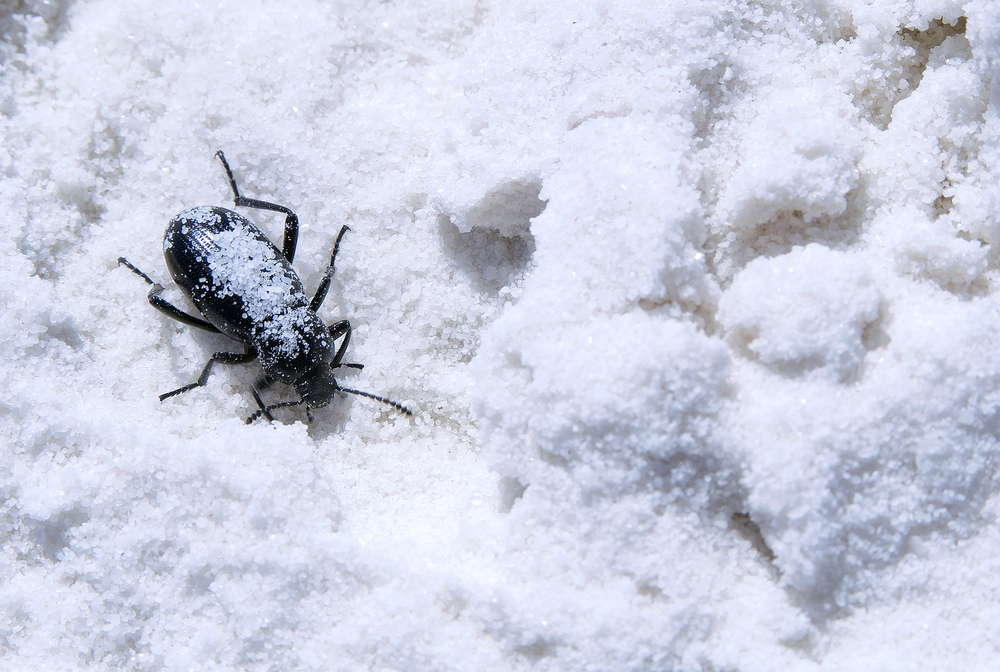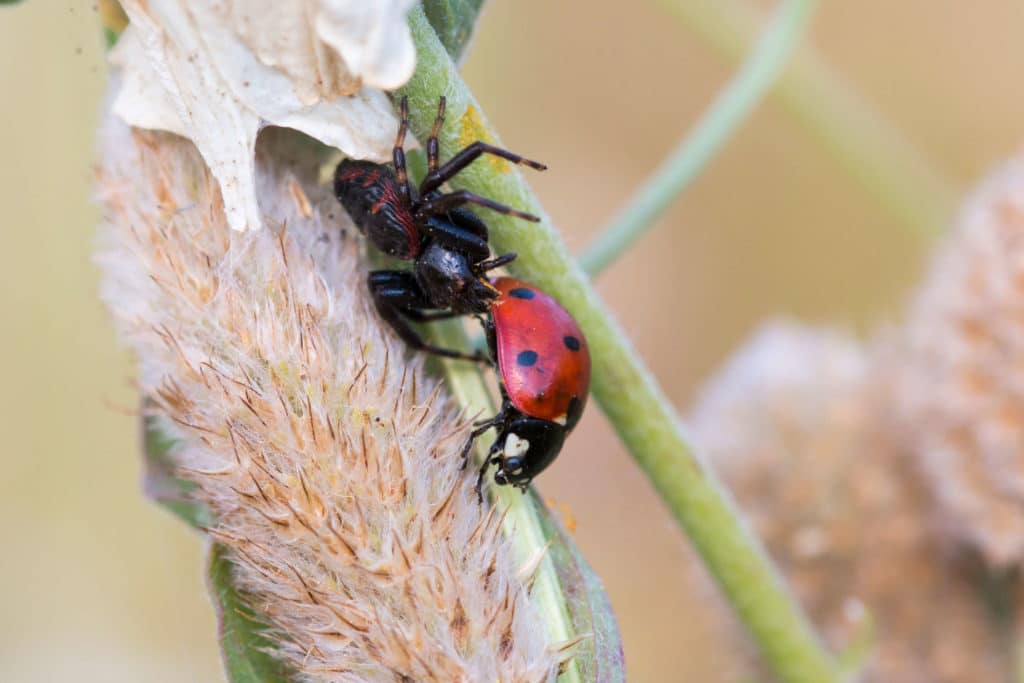
You’ve probably noticed that you don’t see too many insects flying or crawling around during the winter. We don’t often think about where these little critters scurry off to as we’re just glad that they’re gone and not infesting our homes.
Unique Ways That Insects Survive Winter
However, it’s good to be curious! In this article, we’re going to discuss how insects survive the winter. Different species have adapted so well that they have incredibly clever ways to live through the cold months and fly around again in the spring and summer.
So, let’s dive into what happens to insects during the winter.
Do All Insects Die During the Winter?
If you aren’t aware of the unique methods insects use to survive the cold months, you may assume that they just all die out.
If you’re someone who gets squeamish around bugs, this would be the best news ever, right?
Unfortunately, this isn’t what happens. Millions of insects survive the winter. However, there are hundreds of thousands that do not survive. The winter is truly a test for the survival of the fittest for these insect species.
When an insect does die, they usually leave eggs or larvae behind. Therefore, they have created an entirely new generation to come out during the spring.
So, now that we’re clear that insects can survive the winter let’s dive into what they do to make it possible.

Migration
You see geese fly in a V-shape formation to fly down south to warmer weather as the temperature starts to drop. This is known as migration, and some insects do it as well.
The most famous insect to migrate during the winter is the monarch butterfly. They will travel all the way to Mexico from the northeast United States to get to warmer weather.
When winter starts to end, they then fly back to the United States and make a home for themselves again. Unfortunately, many of the butterflies that migrated down to Mexico don’t make it back to the US. However, the next generation of butterflies carries on the journey.
Diapause
Some insects go into diapause, which is a physiological state of dormancy. As they notice and feel the weather become colder and the days get shorter, their bodies go into this state automatically. It can also happen at any stage of the insect’s life.
During diapause, the insect’s metabolism slows down, and sometimes their development actually pauses. In some insects, they can even decrease their freezing point in order to survive.
While diapause sounds very similar to hibernation, it’s very different. As we mentioned above, this state of being is brought on by environmental changes. When the body notices these changes, diapause will set in.
Hibernation
You’ve heard of bears hibernating for the winter, but did you know that many insects do it too? They will find a warm spot to hibernate for the winter, such as underground, under a rock, between a tree’s bark, and even between cracks in your home.
There are actually two types of hibernation certain insects use to survive the winter.
1. Traditional Hibernation
With traditional hibernation, insects will eat as much as they can and fatten their bodies. During hibernation, their metabolism slows down to help them survive the winter. They also flood their bodies with glycerol, which acts as an antifreeze to keep their bodies from freezing.
2. Dry Hibernation
A dry hibernation is almost the opposite of traditional hibernation. Instead of eating as much food as they can and gaining mass, these insects will try to get rid of the food and liquids from their bodies.
Doing this also prevents them from freezing. This is because water needs these particles to turn into ice. So, without these particles, water has an even lower freezing point, and insects are less likely to freeze to death.

Find a Warm Space
Some insects don’t do any of the above and simply find a warm space within your home. You’ll start noticing these bugs during the autumn months inside your home. The most common include cockroaches, ladybugs, spiders, and stink bugs.
If you catch them early enough, you won’t have to deal with them throughout the winter.
Do Freezing Temperatures Affect How Many Bugs Appear in the Spring?
You may be wondering if the winter months influence how many bugs come out during the spring. If so, many bugs die during the winter, there won’t be as many in the spring, right?
While this sounds like it would be right, you’re missing one little detail. Hundreds of thousands, if not millions, of bugs, are still in their development stages during the winter. Eggs, pupa, and larvae are still hidden and growing in these winter months.
So, even though the mature insects may not survive the winter, there will always be more as the eggs develop and go through the life stages of each insect.
Just think about the cicadas that live underground for 17 years! They grow and grow, and then one year, they finally emerge and wreak havoc during the summer months.
Dealing with a Winter Infestation? Call Brody Brothers Pest Control
It isn’t uncommon to find an insect infestation in your home during the winter months. If the insect doesn’t hibernate, go into diapause, or migrate, then they will search for a warm place to stay until the weather warms up again. Your house is the perfect place for that.
If you notice an infestation in your home, don’t hesitate to call Brody Brothers Pest Control. As the area’s leading pest control company, we will take care of your infestation safely and effectively.
Our trained and highly professional team members will treat your home as if it were our own. With our innovative methods and powerful tools, your infestation will be cleared up in no time!
Are you tired of seeing critters scurrying through your home? Call us to schedule a consultation to discuss how Brody Brothers can solve your pest problem.

